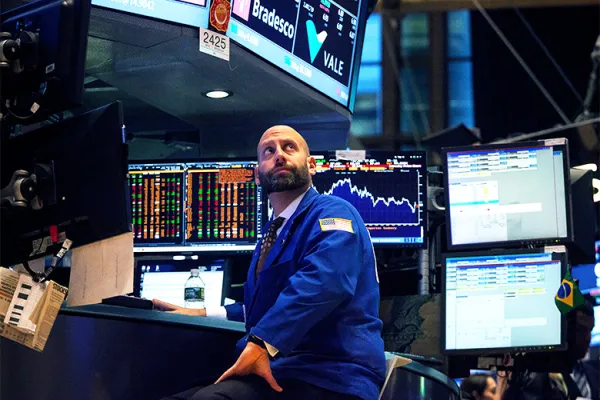As the manager of the Nashville, Tennessee, hedge fund firm Jetstream Capital, Joel Dobberpuhl spent his days chasing 20 percent returns. During the nine years between the time when he founded and then wound down the firm, his financial pursuits left him comfortably positioned to give back some wealth to society.
Dobberpuhl, who is also one of the owners of National Hockey League’s Nashville Predators, is now trying to bridge capitalism and philanthropy. The Dobberpuhl family office invests for impact in cleantech companies, while the Peter Hawkins Dobberpuhl Foundation has pledged $26 million in support of a new investment program spearheaded by the Nature Conservancy, an Arlington, Virginia–based nonprofit and one of the world's largest environmental organizations.
“Recently, we’ve broadened our perspective. With our giving, while we’re hopefully getting a lot of impact for those dollars, from a purely financial perspective that’s a 100 percent loss,” says Dobberpuhl. “And there’s a lot of space between plus-20 and minus-100.”
The Dobberpuhl family initially filed the documents for the foundation in 2007, named for Joel and wife Holly’s son Peter, who died at 22 days old.
Dobberpuhl, now 48, retired in February 2012 and shut down Jetstream, which he had founded in August 2003. He handed back to investors the $500 million the firm had managed. “I’d been a lead portfolio manager for 20 years, and that was enough for me,” says Dobberpuhl, who had previously managed mutual funds for AIM Capital Management.
Although he didn’t leave specifically to become an impact investor, it wasn’t long after his retirement that he officially became just that. Roughly a year ago, he set up a venture fund under the name Jetstream Ventures that invests in private companies with high environmental or social impact and that emphasizes novel and disruptive technologies.
Managed through the Dobberpuhl family office, the fund has backed two companies so far. It teamed with Imperial Innovations, a U.K. technology commercialization outfit, to provide $8.4 million in funding to London-based Econic Technologies. Econic, which was founded in 2011 and started operations in 2012, is developing a new catalyst technology for manufacturing polymers from waste carbon dioxide. Jetstream also participated in a $70 million joint investment — with E.ON, GE Ventures and others — in Sungevity, an Oakland, California–based company that installs and leases solar panels and partners with nonprofits to promote solar energy.
“What we’re trying to do is identify and support people who have ideas and passion, people who are trying to make the world a better place,” says Dobberpuhl, whom Fortune recently named as one of the world’s top 25 eco-innovators. “We suspect that some of those people will set up their venture as for-profit, and some of those people will choose a nonprofit structure,” he says. “We set ourselves up to be able to support them either way.”
On the nonprofit side, the Dobberpuhl foundation has stepped in as the first backer of NatureVest, a program launched in April by the Nature Conservancy and JPMorgan Chase & Co. The goal of NatureVest is to develop a market for conservation-related transactions that raises capital for various Nature Conservancy projects.
The first deal, which Dobberpuhl supported with $7 million as the sole investor, scales up a proven livestock-to-markets program in Kenya. The program purchases cattle directly from individual herding communities at a fair-trade price, buying more animals than the regional livestock traders would and saving the herders the long trek to market. The cows are then fattened and sold in Nairobi markets at higher grades and prices than the herders could have obtained. In return, the herdsmen agree to adhere to environmentally friendly grazing practices and to reject elephant poaching.
The deal, a seven-year, zero-interest loan, was structured so that Dobberpuhl, a longtime Nature Conservancy donor, will see capital returned. Any potential profit will be reinvested to grow the program.
NatureVest itself is still in its infancy. There is potential, however, to structure future transactions in a way that actually makes investors money, says Charlotte Kaiser, the Nature Conservancy’s director of innovative finance. “We definitely expect that many of our investments will offer positive returns, although with subsidies and guarantees and other forms of credit enhancements,” she says.
She expects the next deal, which involves storm water retention credits using green infrastructure in Washington, D.C., will launch by the end of 2014.
In the meantime, JPMorgan is busy educating potential investors, which at these early stages will likely be other high-net-worth individuals and family offices, though eventually it expects that the deal sizes and structures will attract other types of institutional investors as well.
At the moment, according to Matthew Arnold, managing director and head of sustainable finance at JPMorgan in Washington, interest outweighs supply. “There’s not a lot of product in this space yet,” Arnold says. “But for our part, this is way more than a grant; this is a partnership. We’re staffing it; we’ve got a banking team on it. It’s not a casual hobby for us.”
Dobberpuhl hopes others will open their minds about impact investing and find the sweet spot between plus-20 and minus-100 that is comfortable for them.
“We’ve tried to make sure our investing hasn’t cannibalized our giving. And we’re trying to make sure that we’re applying the same rigor and market disciplines on evaluating projects that may not have as high a financial return as we would otherwise require,” says Dobberpuhl. “We’re probably going to make some mistakes along the way. But we think this is generally a good trend, and people should just keep looking for ways to plug into it.”
Get more on alternatives.






